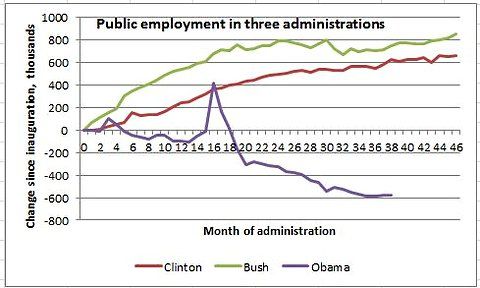The “secret drone” program is the biggest absurdity in town. Every one knows the CIA is using drones and has requested an expansion of their use, the Bush and Obama administrations have admitted to using drones, Obama has even joked about it. We know that Obama has assassinated American citizens with it, without due process, but it’s a secret Really? How stupid does the Obama administration think we are?
From Glenn Greenwald at Salon:
Ten days ago, I wrote about a request made by CIA Director David Petraeus to expand the drone war in Yemen in accordance with the following, as expressed by the first paragraph of The Washington Post article reporting it [..]
At the time, I wrote that “it’s unclear whether Obama will approve Petraeus’ request for the use of ‘signature strikes’ in Yemen,” though that was true only in the most technical sense. It was virtually impossible to imagine that a request from David Petraeus, of all people, to Barack Obama, of all people, for authority to target even more people in Yemen for death, now without even knowing who they are, would be anything but quickly and eagerly approved. And that is exactly what has now happened, as the Post’s Greg Miller reports today:
The United States has begun launching drone strikes against suspected al-Qaeda operatives in Yemen under new authority approved by President Obama that allows the CIA and the military to fire even when the identity of those who could be killed is not known, U.S. officials said. . . .
The decision to give the CIA and the U.S. Joint Special Operations Command (JSOC) greater leeway is almost certain to escalate a drone campaign that has accelerated significantly this year, with at least nine strikes in under four months. The number is about equal to the sum of airstrikes all last year. . . .
Congressional officials have expressed concern that using signature strikes would raise the likelihood of killing militants who are not involved in plots against the United States, angering Yemeni tribes and potentially creating a new crop of al-Qaeda recruits. . .
Gregory Johnsen, a Yemen expert at Princeton University, has questioned . . . the wisdom of the expanded drone operations. . . . “I would argue that U.S. missile strike[s] are actually one of the major – not the only, but a major – factor in AQAP’s growing strength.”
The Up with Chris panelists discuss counter-terrorism as the examine the increase of the US military’s use in a tactic that kills targets, civilians included, by remote
Clive Stafford Smith, the director of Reprieve, a group representing the victims of drone strikes, joins from the Drone Summit in Washington, DC, an event set to investigate the expanding US drone program. The Up panelists key in on what this “expansion” means as the military continues to utilize drone strikes.
Michael Hastings, featured writer for Rolling Stone and a guest panelist on Up with Chris, wrote this chilling analysis of the history and current use of drones and “how killing by remote control has changed the way we fight“:
The use of drones is rapidly transforming the way we go to war. On the battlefield, a squad leader can receive real-time data from a drone that enables him to view the landscape for miles in every direction, dramatically expanding the capabilities of what would normally have been a small and isolated unit. “It’s democratized information on the battlefield,” says Daniel Goure, a national security expert who served in the Defense Department during both Bush administrations. “It’s like a reconnaissance version of Twitter.” Drones have also radically altered the CIA, turning a civilian intelligence-gathering agency into a full-fledged paramilitary operation – one that routinely racks up nearly as many scalps as any branch of the military.
But the implications of drones go far beyond a single combat unit or civilian agency. On a broader scale, the remote-control nature of unmanned missions enables politicians to wage war while claiming we’re not at war – as the United States is currently doing in Pakistan. What’s more, the Pentagon and the CIA can now launch military strikes or order assassinations without putting a single boot on the ground – and without worrying about a public backlash over U.S. soldiers coming home in body bags. The immediacy and secrecy of drones make it easier than ever for leaders to unleash America’s military might – and harder than ever to evaluate the consequences of such clandestine attacks.
“Drones have really become the counterterrorism weapon of choice for the Obama administration,” says Rosa Brooks, a Georgetown law professor who helped establish a new Pentagon office devoted to legal and humanitarian policy. “What I don’t think has happened enough is taking a big step back and asking, ‘Are we creating more terrorists than we’re killing? Are we fostering militarism and extremism in the very places we’re trying to attack it?’ A great deal about the drone strikes is still shrouded in secrecy. It’s very difficult to evaluate from the outside how serious of a threat the targeted people pose.”



Recent Comments